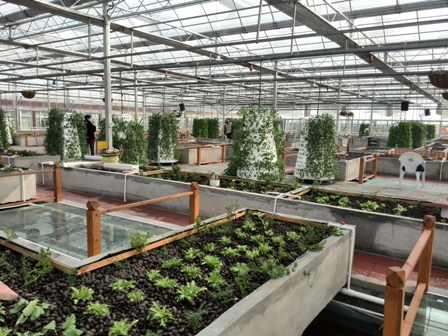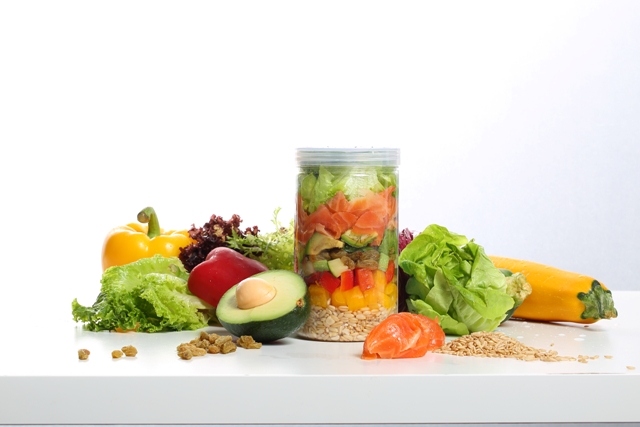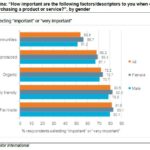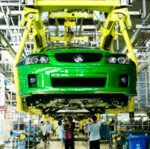Green & Organic Food in China: A Growing Market
Green & Organic Food in China
The market for organic foods has been first seen in China in the 1980s with the awareness of Chinese on the welfare of quality foods. The new studies on the lifestyle of consumers in China show that Chinese consumers are increasingly looking for a healthier life. the main recipient sector of this trend is the organic food sector, as around 80% of consumers are upset against the food safety in China and are ready to pay a higher price in order to have organic and safe products. Indeed,
the number of specialist and boutique food shops selling organic food is growing, mainly among the Chinese middle-class and the expatriate community who have disposable income and are looking for premium, good-quality, and safe food. However, the development of the organic food industry has been challenged by many issues in mainland China with the food contamination, the counterfeit products, the pollution, and the food scandals such as the illegal sale of nonorganic products with the organic label. The percentage of organic food sales in China rose by 30% -50%. In 2013, China owns about 3.5 million hectares of certified organic farmland, with a total organic produce valued at approximately US $ 3.2 billion, of which US $ 700 million have gone for export. Also, the imports of organic products were estimated at the US $ 4 million in the same year.
A Rising Trend
 The Chinese consumers are buying more and more organic products and today, around 56% of the population declared to have increased their spending on organic products. More than half of Chinese consumers buy fresh organic foods, today the best sellers among the organic products are; cooking oil, Fresh milk, pork, chicken, and beef. Supermarkets are the most common way to purchase it, with around 75% of consumers who buy organic products directly in the supermarket.
The Chinese consumers are buying more and more organic products and today, around 56% of the population declared to have increased their spending on organic products. More than half of Chinese consumers buy fresh organic foods, today the best sellers among the organic products are; cooking oil, Fresh milk, pork, chicken, and beef. Supermarkets are the most common way to purchase it, with around 75% of consumers who buy organic products directly in the supermarket.
The increased consumption of organic food shows clearly the actions of consumers, in order to adopt the best possible good eating attitudes. This trend of buying and consuming food from organic producers is more and more accepted, as consumers are paying more attention for the products they consume, by checking the labels such as the origin, the logistic of the cold chain, the ingredients and the date stamp on the food.
Lohao is one of the largest producers and retailers of organic food in shops and outlets throughout China. Its turnover rose by around 30% compared to last year and should continue to grow in the coming years.
Organic foods are more expensive, costing more than three times a nonorganic product. For example, a vegetable bought at the organic farm Yimutian, in the district of Chongming in Shanghai, that is weighing 1.3 kg is sold 35 yuan. The price of an ordinary vegetable is about 5 yuan in an ordinary Shanghai market.
People who can afford organic products in China are becoming numerous, around 80% of Supermarket’s customers are buying organic foods. In addition, only in Shanghai city, some Shanghai residents are renting land for their own consumption, with the cultivation of vegetables and organic fruit for the whole families. Organic food culture has enormous business opportunities in the market, many companies have embarked on the organic food sector, Daxue reports indicate that nearly 426 companies have obtained the certification of organic food Certification Center China (COFCC) in 2014, an increase of about 18 % compared to 2012.
E-commerce Platforms are Driving the Sales
In cities such as Shanghai and Beijing where people are supposed to have a better education and a higher income are usually targeted by organic food suppliers. Currently, it is easier for households to find organic food labeled in stores, supermarkets, and online stores. Also during these last two years, the advent of e-commerce has allowed the organic food industry to live a real growth in China. The major e-commerce sites, including Taobao and Jingdong, sell food including organic rice. However, it is still difficult to determine whether the food is really organic since the regulations are different from western countries. For instance, with the organic pork scandal in Wal-Mart Chongqing, the Sichuan Province of China, people’s trust on organic foods in the country has decreased a lot.
For greater efficiency, organic retailers and suppliers should strengthen their discipline in order to strengthen the reliability among competitors. To restore confidence, retailers reported deploy every means efforts to protect the rights of clients and maintain their leadership.
Therefore strict rules are applied by retailers when selecting organic food suppliers, they are asking them to provide several certifications, from certification centers. Every farm are visited and the entire process is inspected, from the cultivation to the delivery.
However, organic products are in general real expensive and not everyone could afford those type of food. The one who cannot afford the premium price of organic food have not much choice, in terms of safe food.















